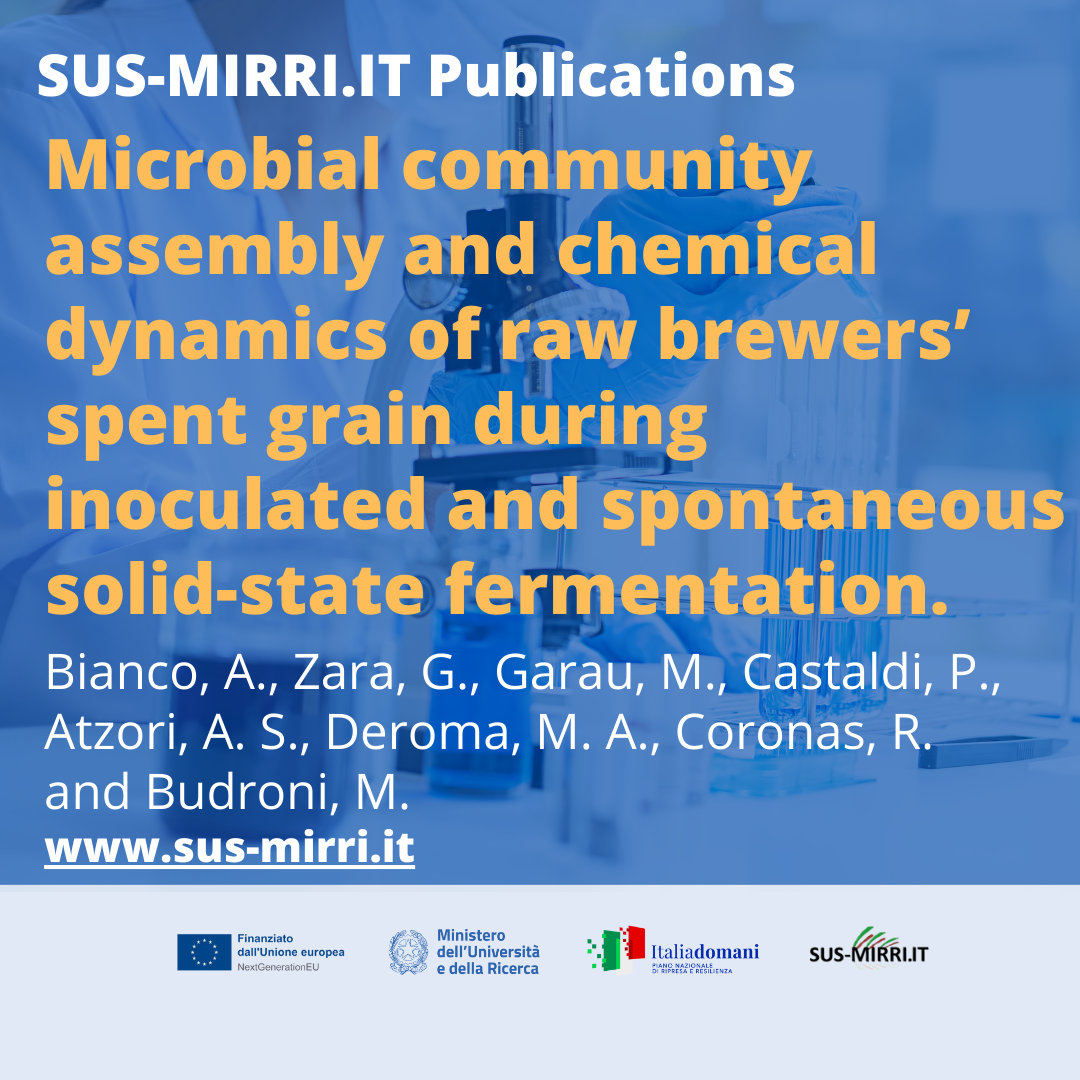Bianco, A., Zara, G., Garau, M., Castaldi, P., Atzori, A. S., Deroma, M. A., Coronas, R. and Budroni, M. Available online 21 December 2023 Microbial community assembly and chemical dynamics of raw brewers’ spent grain during inoculated and spontaneous solid-state fermentation. Waste Management Vol. 174 518-527 https://doi.org/10.1016/j.wasman.2023.12.021
Abstract
Solid-state fermentation (SSF) carried out by microbial bioinoculants is an environmentally friendly technology for the sustainable recovery and valorization of agri-food wastes. Particularly, mesophilic SSF processes allows the production of bio-organic fertilizers enriched with beneficial soil microorganisms. However, the establishment of microbial consortia and the interaction with native waste microbiota still require thoughtful investigations. Here, raw brewers’ spent grain (BSG), the main waste from the brewing industry, was subjected to two mesophilic SSF processes (maximum temperature of 35 °C) carried out by a multi-kingdom microbial bioinoculant and the BSG spontaneous microbiota. After 90 days, both SSF processes led to stable organic soil amendments, as indicated by the C:N ratio (10.00 ± 1.4), pH (6.66 ± 0.09), and DOC (8.45 ± 1.2 mg/g) values. Additionally, the fermented BSG showed a high nitrogen content (42.2 ± 3.4 mg/Kg) and biostimulating activities toward Lepidium sativum seeds. The monitoring of microbial communities by high-throughput sequencing of 16S and ITS rRNA indicated that BSG samples were enriched in microbial genera with interesting agronomic applications (i.e., Devosia, Paenibacillum, Trichoderma, Mucor, etc.). Microbial cross-kingdom network analyses suggested that the microbial assembly of BSG was significantly influenced by the bioinoculant, despite the inoculated microbial genera being able to persist in BSG samples only the first week of SSF. This suggests that the study of microbial interactions between exogenous microbial inoculants and waste resident microbiota is required to optimize SSF processes aimed at the recovery and valorization of unprocessed wastes.
Graphical abstract

Read more at: https://www.sciencedirect.com/science/article/pii/S0956053X23007584?via%3Dihub



